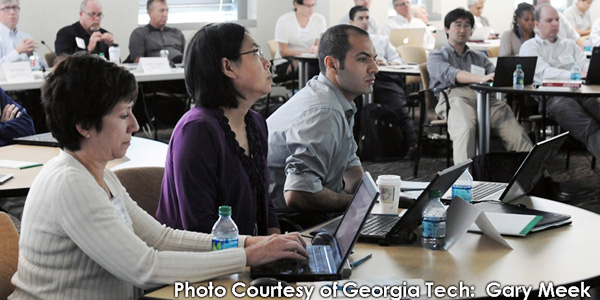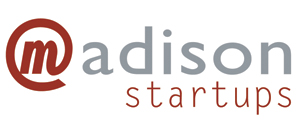
(Story and photo provided by the Leah Call/Center for Technology Commercialization; edited by Madison Startups)
The Center for Technology Commercialization/Wisconsin Entrepreneurs’ Network (CTC/WEN) recently wrapped up its second consecutive year of mentoring a team from the University of Wisconsin through the National Science Foundation Innovation Corps (iCorps) program, an intensive seven-week program created in 2012 to improve the commercial successes of NSF-funded technology and to expedite the start-up process.
iCorps provides each competitively assembled team with a $50,000 grant and the opportunity to determine whether a technology is commercially viable. Each team is comprised of a post doctorate or graduate student as the entrepreneurial lead, a mentor (typically a seasoned entrepreneur) and a principal investigator (typically a faculty member).
The 2013 UW team consisted of CTC/WEN Consultant David Linz as mentor, along with Entrepreneurial Lead Sean Larson and Principal Investigator Dr. Leyuan Shi. The team focused on LS Optimal manufacturing scheduling technology.
The teams participated in the iCorps Lean LaunchPad curriculum designed by renowned serial entrepreneur Steven Blank. The Lean LaunchPad approach is unique in that it emphasizes the role of the customer in bringing an abstract technology to market.
“Lean LaunchPad uses the Business Model Canvas as a framework to do customer development. It is the fastest and most efficient way to identify a profitable and scalable business model upon which to start a successful business,” Linz, who noted that CTC/WEN has adopted the same approach in consulting with its clients, said.
CTC Acting Director Cheryl Vickroy, who served as a mentor on the iCorps 2012 team, champions the methodologies utilized in the iCorps program, which strives to turn out 1,000 people nationwide with these lean startup skills over a two- to three-year period.
“The whole program is designed to figure out if a technology with potential commercial application is a ‘go’ or ‘no-go’ as quickly as possible,” Vickroy said. “Essentially, the process reduces the risk of market acceptance for an idea or innovation. Participants gain tremendous skills from this. If they don’t apply it to their technology, they will apply it to another technology that they develop in the future.”

